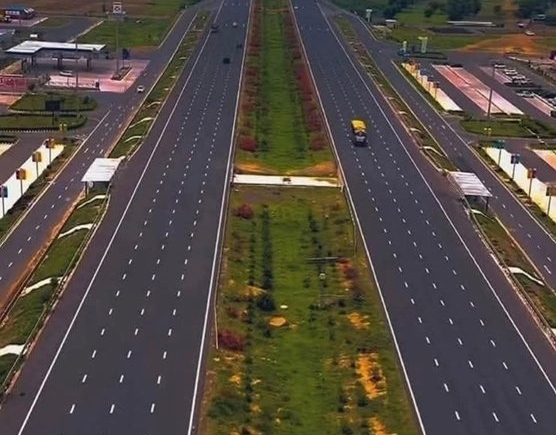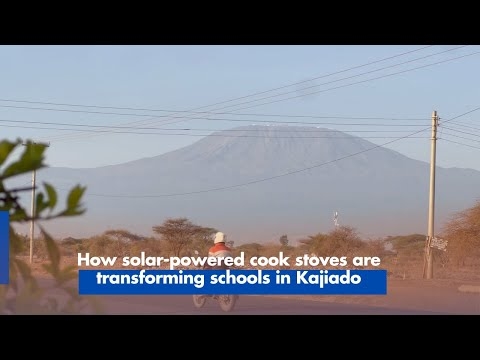Erick Ndangali owns a beautiful house and runs many small-scale businesses he started through boda boda work.
Juma Tambaa bought land and took himself to driving school and several of his siblings to college.
Annest Bagala from Samburu has four motorbikes, a quarter an acre and a good house after saving for some years.
Juma Gamtoni, who is also the boda boda chairman in Matuga, has provided employment opportunities to others.
All have benefited from a sector that since its birth has been associated with all manner of criminal activities.
It has been linked to teen pregnancy, theft, accidents, illiteracy, drugs, traffic rules violation, arms and human trafficking.
In Matuga, police reports indicate that about 60 per cent of accidents are caused by reckless boda boda riders.
But the sector, which has come a long way, has grown into a useful source of employment depended on by millions of jobless youth and families in Kenya.
The industry is believed to be directly and indirectly supporting about 5.2 million Kenyans, with the business generating an estimated annual income of Sh357 billion.
At least one in 10 people in Kenya is relying on the boda boda sector for income.
In the transport public sector, boda bodas became a game-changer. They are quick, affordable and flexible, traversing even in poor, inaccessible rural routes.
Ndangali said per day, he can earn Sh1,000-1,500 after deducting the fuel expenses because he owns the motorbike.
Those who are employed generate a daily income of Sh700-2,000, depending on the route and area of operations.
CHANGING LIVES
Ndangali has seven years of experience in the boda boda sector but within a short period, he managed to transform his life tremendously.
Initially, he used to be a vegetable vendor in Kwale market, but after being hired to operate a motorbike in 2014, he expanded his business and bought two other bikes.
His earnings have helped him provide shelter and a good meal for his family. He has two children, one in Form 3 and the other still in primary school, both learning in private schools.
Kenya has about 1.4 million boda boda riders. Many have managed to rise from rugs to riches, outdoing millions of graduates still waiting for employment opportunities in big companies.
Kwale alone is estimated to have over 12,000 riders, both men and women. Some 8,500 are registered under the Boda Boda Association of Kenya.
Bagala and his Samburu colleagues have bought walking tractors, which they hire to the community for ploughing. They also do farming.
For Bernard Mtoi, despite dropping out of school in Form 3, the sector has made him realise the need for education.
He is yet to continue with his studies, with the sector being the source of his school fees for both his nine children and himself.
Crispus Kioko, a Form 2 dropout, said boda boda work is paying school fees for his children, some of whom are in college while others are in various high schools.
Gamtoni said some people have joined the Kenya Army Force, become teachers, electricians and plumbers among other professions through the boda boda sector.
"We normally work as a family. We advise and sponsor one another for those who want to pursue education, acquire driving licences or seize opportunities," he said.
Hundreds of youth in Kwale have successfully changed their lives through motorbikes.
Some stopped using drugs and settled down to concentrate on life.
In June, the county police report indicated a sharp drop in indiscipline cases in the boda boda sector compared to last year.
Many young people in areas like Matuga and Msambweni who used to engage in crime have sought clean regular income through the boda boda sector.
The region has for long been on the government radar over insecurity cases, with some terrorists and gang groups believed to be operating from within.
We frequently get phone calls from our clients even at midnight that someone is sick or in labour pain and needs to be taken to a health facility
WHY THEY THRIVE
Motorbikes are more flexible than tuk tuks, and since a big percentage of county roads is in a poor state, the bikes remain the most reliable and effective mode of transport.
Areas like Kilibasi, Silaloni and Kaza Moyo in Kinango greatly depend on the bikes for every breath of life.
With the scarcity of water highly experienced in most parts of the county, the riders are hired to fetch the useful commodity from long distances.
Boda bodas have made it easy for Kwale people to travel in and out of remote areas.
Before, residents used to trek for long distances to their homes from the stage.
Gamtoni said boda riders have become like the public’s assistants. When emergencies arise during the night, they are there to provide services.
“We frequently get phone calls from our clients even at midnight that someone is sick or in labour pain and needs to be taken to a health facility,” he said.
The community has also come to trust boda bodas. Many would leave the lives of their children in the hands of these riders.
A rider would be assigned work to pick and drop pupils to and from schools on a daily basis.
Sometimes, they are even entrusted to deliver an entire family shopping from towns to a doorstep point at a small fee.
In terms of speed, the boda bodas save time, unlike buses and matatus, which take time to get full and waste more time picking and dropping passengers on the way.
For example, in Kwale main stage, one can take almost half an hour waiting for other passengers to board the matatu.
A similar case happens at Kombani, especially during afternoons and weekends, when public vehicles are scarce.
DARKER SIDE
Many youngsters have become visionless, lazy and eager to get quick money.
Self-proclaimed county boda boda chairman Hassan Mwatenga says a huge number of Class 8 candidates, mostly those who performed poorly, opt to go for boda boda business and completely forget about education.
He said employment opportunities slip away simply because the youth lack documents to present.
After some years, the same group gang up to complain about unemployment and being marginalised.
A huge percentage of boda boda are drug addicts. They are either on hard or soft drugs.
Currently, the county is grappling with over 5,000 drug addicts as per statistics given by Teens Watch, a youth affairs organisation in Diani.
In Kwale town, walking to Kombani and all the way to Ukunda, you won’t miss at least two out of 10 boda boda riders whose mouths are full of muguka.
Some take tobacco and the effects of drugs can clearly be demonstrated in how they roughly and arrogantly they ride the motorcycles.
Sometimes they cause noise pollution by doing unnecessary hooting and bike skidding at bus stops.
Since the sector is less regulated by the government, riders do what they want, frequently violate traffic rules, and many lack driving licences and insurance covers.
The sector has also been hijacked by malicious people. Many young boda bodas are used to commit crimes.
According to reports from Kwale police, motorcycles are commonly used to smuggle illegal goods and people in porous routes along the Kenya-Tanzania border in Lunga Lunga subcounty.
Last year, Kwale police seized a huge amount of bhang at Mteza on the Lutsangani-Mbuguni road in Matuga being transported on a motorbike.
Some criminals prey on the boda bodas and their pillion passengers to rob them of their money or the motorbikes.
Ndangali has narrowly escaped death more than three times. He said some thieves would pose as passengers only to rob you later as you pass through isolated dark alleys.
He said several of his colleagues have been victimised.
“Some of us have had their motorbikes stolen and gotten assaulted by unknown thieves who are always armed to the teeth,” he said.
The Covid-19 pandemic has put boda bodas at risk of contracting the virus because the nature of their work requires physical contact.
County commissioner Joseph Kanyiri ranked motorbike riders as the most notorious in flouting the public health rules.
"The motorbikes are killing machines. Most young people don’t wear protective gear and suffer chest-related ailments more frequently," he said.
Edited by T Jalio












